Your cart is currently empty!
Tag: Data Center Facilities Management
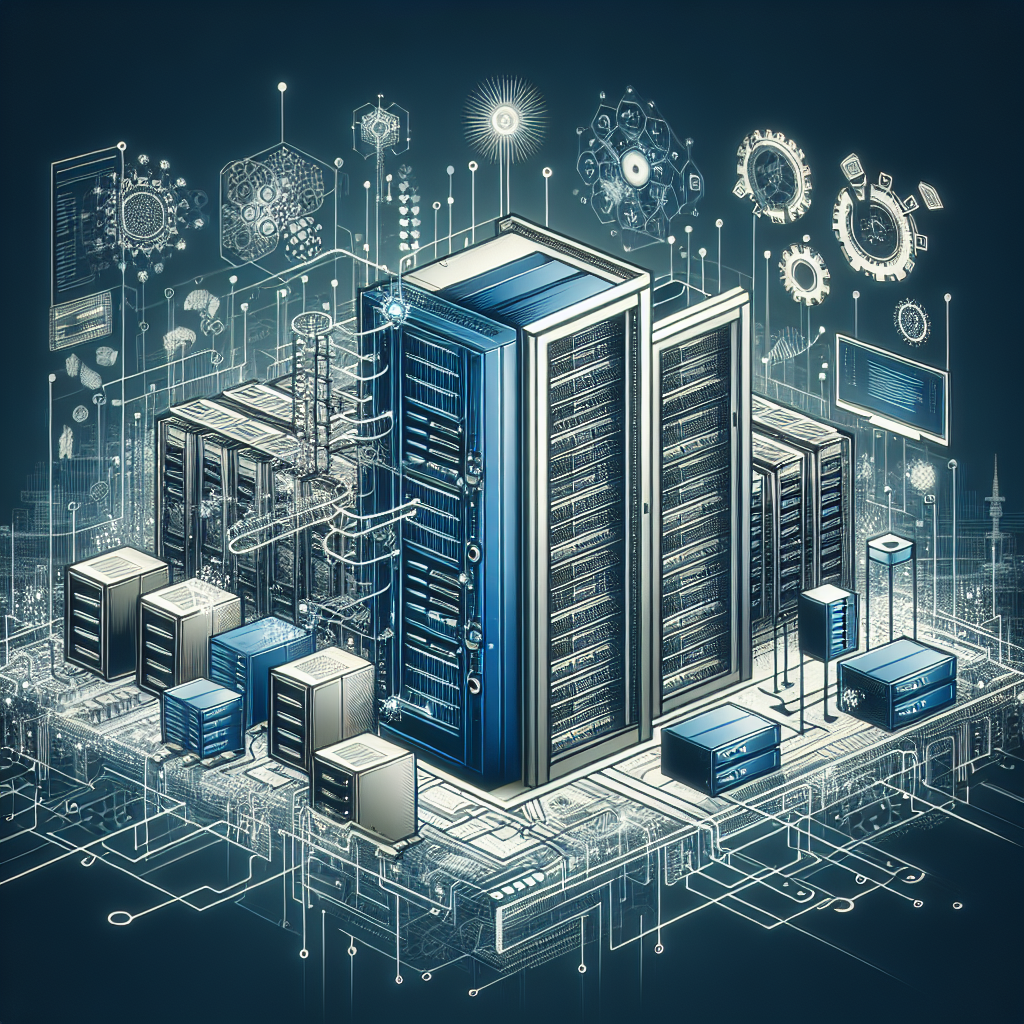
The Future of Data Center Facilities Management: Innovations and Technologies
The data center industry is constantly evolving, with new technologies and innovations shaping the way facilities are managed and operated. As the demand for data storage and processing continues to grow, data center facilities management is becoming increasingly complex and critical to ensuring optimal performance and efficiency.One of the key trends shaping the future of data center facilities management is the adoption of automation and artificial intelligence (AI) technologies. These tools are being used to streamline operations, improve energy efficiency, and reduce downtime. For example, AI-powered predictive maintenance systems can analyze data in real-time to identify potential issues before they cause a major outage, helping to prevent costly downtime and improve overall reliability.
Another important innovation in data center facilities management is the use of modular and containerized data centers. These pre-fabricated units can be quickly deployed and easily scaled to meet changing demand, providing a more flexible and cost-effective solution compared to traditional brick-and-mortar facilities. Modular data centers also offer improved energy efficiency and a smaller environmental footprint, making them a more sustainable option for companies looking to reduce their carbon footprint.
In addition to automation and modular design, data center facilities management is also being revolutionized by the use of sensors and Internet of Things (IoT) technology. These devices can monitor and control various aspects of the data center environment, such as temperature, humidity, and power usage, in real-time. By collecting and analyzing this data, facilities managers can identify inefficiencies, optimize performance, and make more informed decisions about resource allocation.
As the data center industry continues to evolve, it is clear that facilities management will play a crucial role in ensuring the reliability, efficiency, and sustainability of these critical infrastructure assets. By embracing innovative technologies such as automation, AI, modular design, and IoT, data center operators can stay ahead of the curve and meet the growing demands of the digital economy. The future of data center facilities management is bright, with endless possibilities for innovation and advancement in the years to come.
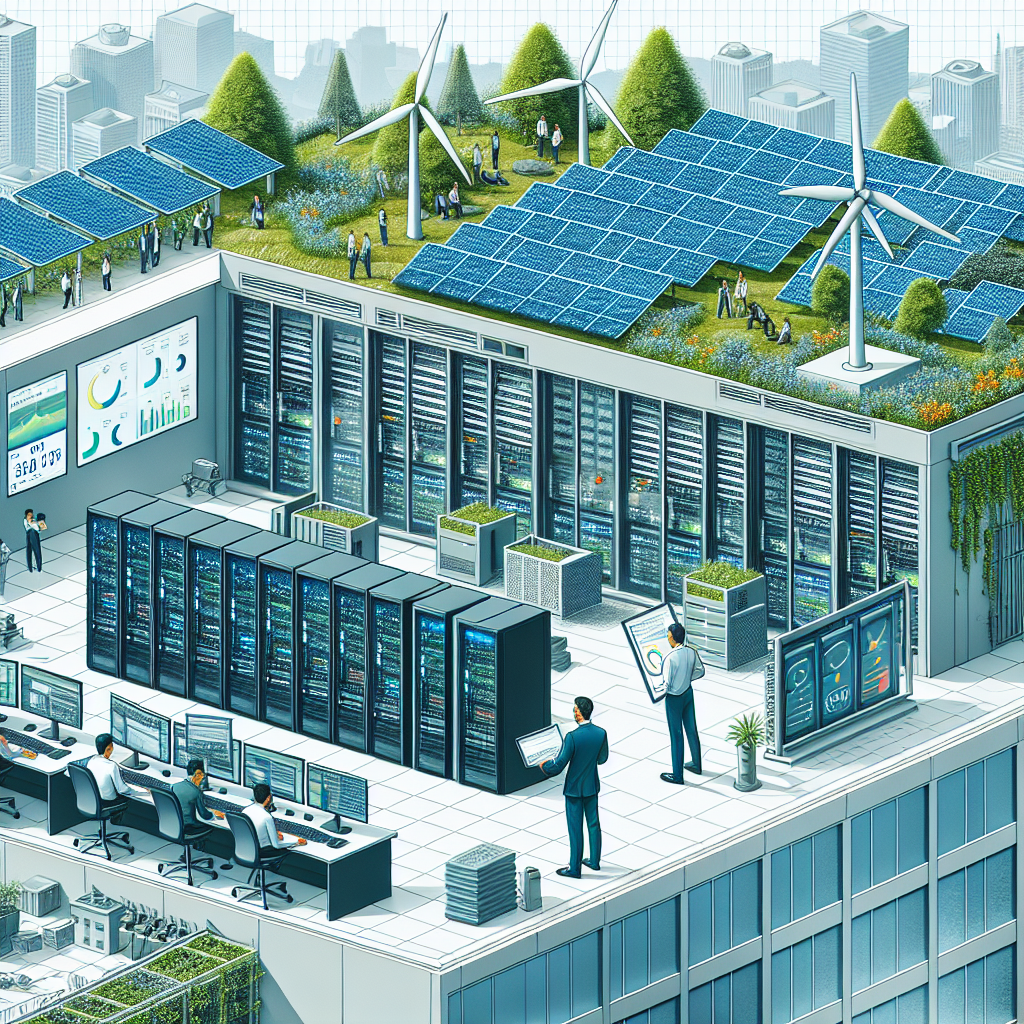
Creating a Sustainable Data Center through Effective Facilities Management
In today’s digital age, data centers play a crucial role in storing and managing vast amounts of information for businesses and organizations. With the increasing demand for data storage and processing power, it is essential for data centers to operate efficiently and sustainably. Effective facilities management is key to creating a sustainable data center that can meet the growing needs of the digital economy while minimizing its environmental impact.Facilities management encompasses a wide range of activities, including maintenance, repairs, upgrades, and monitoring of the physical infrastructure of a data center. By implementing best practices in facilities management, data center operators can optimize energy efficiency, reduce operational costs, and minimize their carbon footprint.
One of the most important aspects of creating a sustainable data center is energy efficiency. Data centers are notorious for their high energy consumption, as they require constant cooling and power to operate servers and other equipment. By implementing energy-efficient technologies and practices, such as using energy-efficient servers, airflow management systems, and LED lighting, data centers can significantly reduce their energy consumption and operating costs.
Regular maintenance and monitoring of equipment are also essential for ensuring the efficient operation of a data center. By conducting routine inspections, identifying and addressing potential issues early on, data center operators can prevent costly downtime and extend the lifespan of their equipment. Additionally, implementing a preventive maintenance program can help optimize the performance of equipment and reduce the risk of unexpected failures.
Another important aspect of facilities management in a sustainable data center is waste management. Data centers generate a significant amount of electronic waste, including outdated equipment, cables, and other materials. By implementing a comprehensive waste management program, data center operators can ensure that e-waste is properly recycled or disposed of, reducing their environmental impact and promoting a circular economy.
Furthermore, data center operators can improve the sustainability of their facilities by implementing green building practices, such as using renewable energy sources, optimizing water usage, and reducing carbon emissions. By investing in renewable energy sources, such as solar or wind power, data centers can reduce their reliance on fossil fuels and lower their carbon footprint. Additionally, implementing water-saving technologies and practices can help data centers reduce their water consumption and minimize their impact on local water resources.
In conclusion, creating a sustainable data center through effective facilities management is essential for meeting the growing demands of the digital economy while reducing environmental impact. By implementing energy-efficient technologies, conducting regular maintenance, implementing waste management programs, and adopting green building practices, data center operators can optimize the performance of their facilities and contribute to a more sustainable future. By prioritizing sustainability in facilities management, data centers can set an example for other industries and help build a more sustainable digital infrastructure for future generations.

Understanding the Impact of Facilities Management on Data Center Performance
In today’s digital age, data centers play a crucial role in storing and processing vast amounts of information for businesses and individuals. These facilities house servers, networking equipment, and storage systems that are essential for running applications and services. However, the performance of a data center can be greatly influenced by the quality of its facilities management.Facilities management encompasses a range of activities that ensure the efficient operation of a data center, including maintenance, repairs, security, and energy management. Effective facilities management is essential for ensuring that a data center operates at optimal performance levels and can meet the demands of a growing business.
One of the key factors that impact data center performance is the reliability of the infrastructure. A well-maintained data center with reliable power sources, cooling systems, and networking equipment is less likely to experience downtime or performance issues. Facilities management plays a crucial role in maintaining and monitoring these systems to prevent failures and ensure that the data center can operate without interruption.
Another important aspect of facilities management is energy efficiency. Data centers are known for their high energy consumption, and inefficient cooling systems and power distribution can lead to increased operating costs and environmental impact. Facilities managers can implement energy-efficient practices, such as using hot aisle/cold aisle containment, implementing virtualization technologies, and optimizing cooling systems to reduce energy consumption and lower costs.
Security is also a critical consideration for data centers, as they store sensitive information that is valuable to businesses and individuals. Facilities management includes implementing physical security measures, such as access controls and surveillance systems, as well as cybersecurity measures to protect against data breaches and cyber attacks. A robust security infrastructure is essential for maintaining the integrity and confidentiality of data stored in a data center.
In conclusion, facilities management plays a crucial role in ensuring the performance and reliability of a data center. By implementing best practices in maintenance, energy efficiency, and security, facilities managers can help to optimize the operation of a data center and ensure that it can meet the demands of a growing business. Understanding the impact of facilities management on data center performance is essential for businesses that rely on the efficient operation of their data centers for success in today’s digital economy.
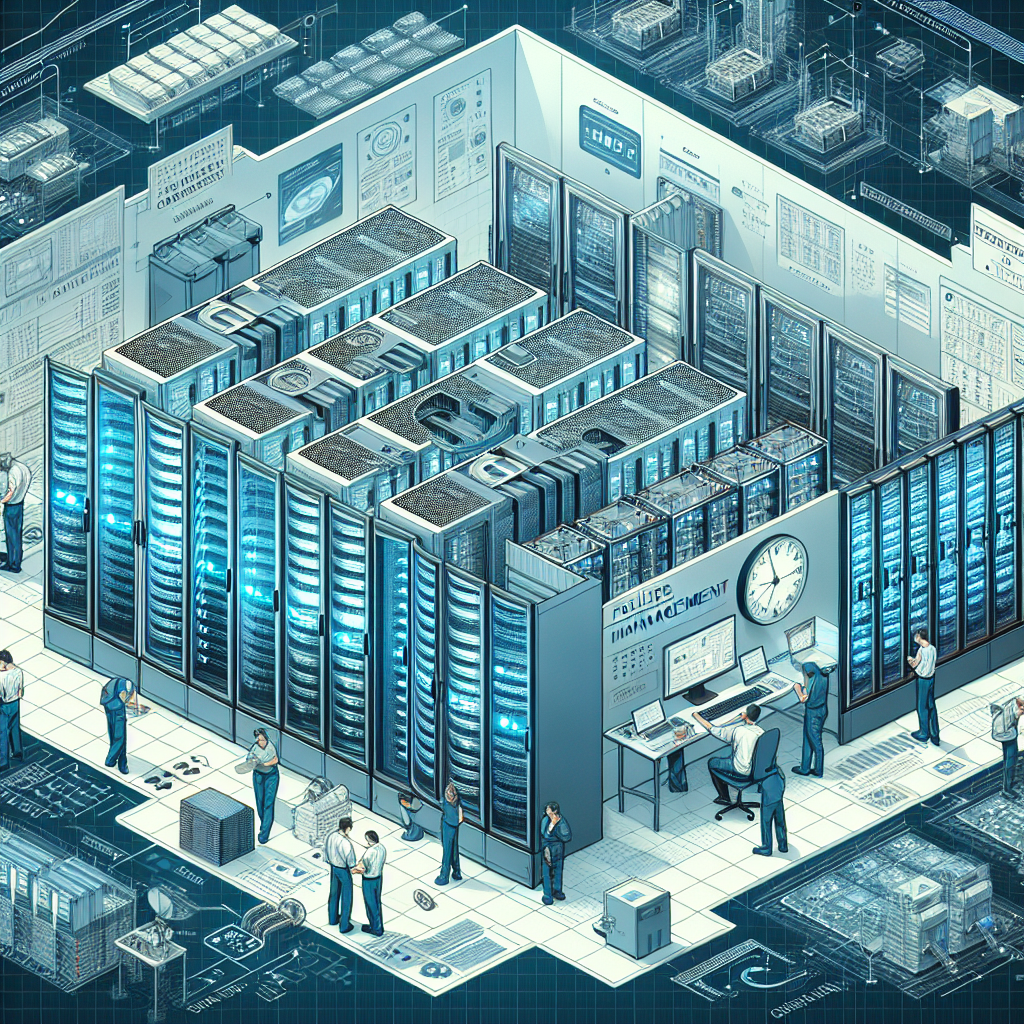
The Role of Facilities Management in Ensuring Data Center Reliability and Security
In today’s digital age, data centers play a crucial role in storing and processing vast amounts of information for businesses and organizations. As such, ensuring the reliability and security of these data centers is paramount to safeguarding sensitive data and maintaining business operations. One key player in this process is facilities management, which encompasses the oversight and maintenance of the physical infrastructure that houses the data center.Facilities management plays a critical role in ensuring the reliability of a data center by implementing best practices for infrastructure maintenance and monitoring. This includes regular inspections of power and cooling systems, as well as proactive measures to address potential issues before they escalate into major disruptions. By maintaining a robust maintenance schedule, facilities management can help prevent downtime and ensure that the data center operates at peak efficiency.
In addition to reliability, facilities management also plays a key role in ensuring the security of a data center. This includes implementing physical security measures such as access control systems, surveillance cameras, and security guards to prevent unauthorized access to the facility. Facilities management also oversees the implementation of cybersecurity measures, such as firewalls, intrusion detection systems, and encryption protocols, to protect data from external threats.
Furthermore, facilities management plays a crucial role in disaster recovery planning and implementation. By developing and testing disaster recovery protocols, facilities management can ensure that the data center is prepared to quickly recover from unexpected events such as power outages, natural disasters, or cyberattacks. This proactive approach helps minimize downtime and data loss, safeguarding the integrity of the data center and the information it contains.
Overall, facilities management plays a vital role in ensuring the reliability and security of data centers. By implementing best practices for infrastructure maintenance, security, and disaster recovery, facilities management helps safeguard sensitive data and maintain business operations. As data centers continue to play a central role in the digital economy, the importance of effective facilities management cannot be overstated.
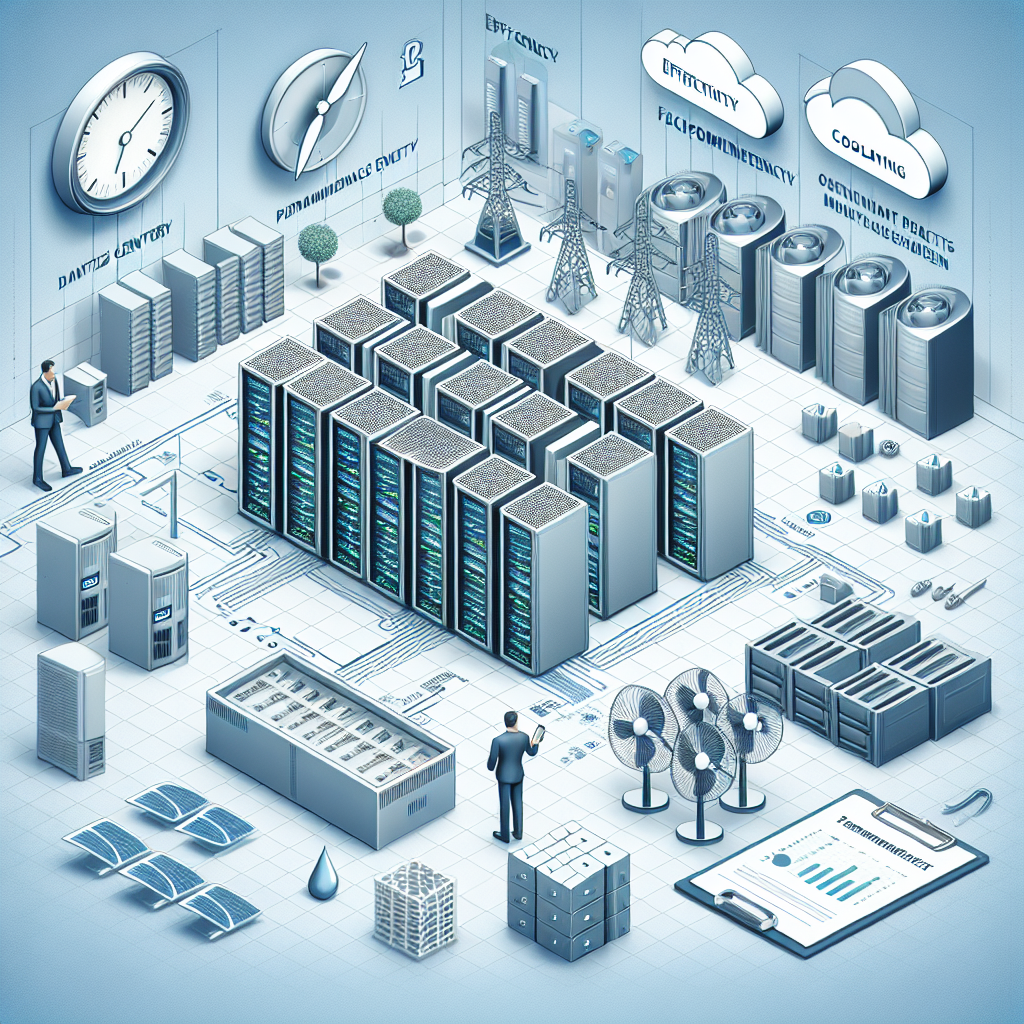
Maximizing Efficiency in Data Center Operations Through Facilities Management
Data centers are the backbone of modern technology, housing the servers and networking equipment that power the digital world. As the demand for data storage and processing continues to grow, data center operators are constantly looking for ways to maximize efficiency in their operations. One key aspect of achieving this goal is through effective facilities management.Facilities management in data centers encompasses a wide range of tasks, including monitoring and maintaining the physical infrastructure of the facility, such as power distribution, cooling systems, and security measures. By optimizing these systems, data center operators can ensure that their facility is running at peak performance, minimizing downtime and reducing energy consumption.
One of the most critical components of facilities management in data centers is power distribution. Data centers require a significant amount of electricity to operate, and ensuring a reliable power supply is essential to prevent costly outages. By implementing redundant power systems, such as uninterruptible power supplies (UPS) and backup generators, data center operators can mitigate the risk of downtime due to power failures.
Cooling systems are another key aspect of facilities management in data centers. The servers and networking equipment housed in data centers generate a significant amount of heat, which must be dissipated to prevent overheating and equipment failure. By implementing efficient cooling systems, such as hot aisle/cold aisle containment and computer room air conditioning (CRAC) units, data center operators can maintain optimal operating temperatures and reduce energy consumption.
Security is also a critical aspect of facilities management in data centers. Data centers house sensitive information and valuable equipment, making them a prime target for cyber attacks and physical breaches. By implementing robust security measures, such as biometric access controls, surveillance cameras, and intrusion detection systems, data center operators can protect their facility and prevent unauthorized access.
Overall, effective facilities management is essential for maximizing efficiency in data center operations. By optimizing power distribution, cooling systems, and security measures, data center operators can ensure that their facility is running at peak performance, minimizing downtime and reducing energy consumption. As the demand for data storage and processing continues to grow, investing in facilities management will become increasingly important for data center operators looking to stay competitive in the digital age.

Key Strategies for Optimizing Data Center Facilities
Data centers are the backbone of modern technology infrastructure, serving as the central hub for storing, processing, and distributing data. In today’s digital age, businesses rely on data centers to ensure their information is secure, accessible, and reliable. With the increasing demand for data storage and processing capabilities, optimizing data center facilities has become a top priority for organizations looking to maximize efficiency and performance.There are several key strategies that businesses can implement to optimize their data center facilities and improve overall operations. By focusing on these strategies, organizations can enhance the reliability, scalability, and energy efficiency of their data centers, ultimately reducing costs and improving performance.
1. Implementing efficient cooling systems: Data centers generate a significant amount of heat due to the numerous servers and equipment housed within the facility. To prevent overheating and ensure optimal performance, it is essential to implement efficient cooling systems. By utilizing advanced cooling technologies such as hot aisle/cold aisle containment, airside economization, and liquid cooling, businesses can reduce energy consumption and maintain a consistent temperature throughout the data center.
2. Utilizing virtualization and consolidation: Virtualization technology allows organizations to maximize the efficiency of their data center infrastructure by consolidating multiple virtual servers onto a single physical server. By reducing the number of physical servers needed, businesses can save on space, power, and cooling costs, while also increasing resource utilization and scalability. Virtualization also enables businesses to easily scale their infrastructure to meet changing demands and improve overall flexibility.
3. Implementing energy-efficient hardware: Upgrading to energy-efficient servers, storage devices, and networking equipment can significantly reduce power consumption and operating costs within a data center. Businesses should look for Energy Star-certified hardware and equipment that is designed to minimize energy usage without compromising performance. By investing in energy-efficient hardware, organizations can lower their carbon footprint and reduce their overall environmental impact.
4. Implementing a comprehensive monitoring and management system: To effectively optimize data center facilities, businesses should implement a comprehensive monitoring and management system that provides real-time visibility into the performance and operation of their infrastructure. By utilizing advanced monitoring tools and analytics software, organizations can identify potential issues, optimize resource utilization, and proactively address any issues before they impact operations. This proactive approach can help businesses prevent downtime, improve efficiency, and ensure maximum uptime for critical applications and services.
5. Implementing a disaster recovery plan: Data centers are vulnerable to a variety of threats, including natural disasters, cyberattacks, and equipment failures. To protect against these risks and ensure business continuity, organizations should implement a comprehensive disaster recovery plan. This plan should include regular data backups, redundant systems, and failover capabilities to ensure that critical data and applications can be quickly restored in the event of a disaster. By implementing a robust disaster recovery plan, businesses can minimize downtime, reduce data loss, and maintain the integrity of their operations.
In conclusion, optimizing data center facilities is essential for businesses looking to maximize efficiency, reliability, and performance. By implementing key strategies such as efficient cooling systems, virtualization, energy-efficient hardware, monitoring and management systems, and disaster recovery plans, organizations can enhance the overall operation of their data centers and ensure they are able to meet the growing demands of today’s digital economy. By investing in these strategies, businesses can reduce costs, improve reliability, and position themselves for long-term success in an increasingly competitive marketplace.
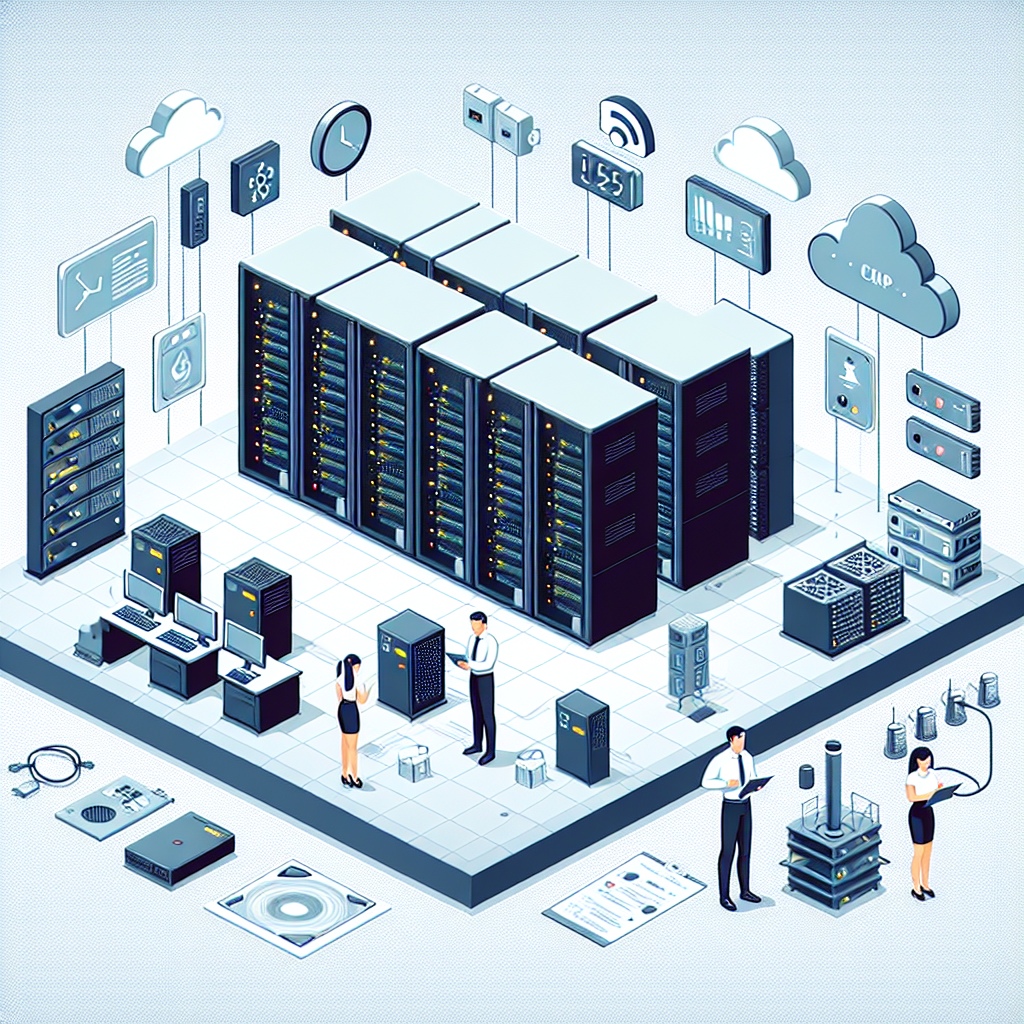
Data Center Facilities Management: Why It’s Essential for Modern Businesses
In today’s digital age, data has become the lifeblood of modern businesses. From customer information to financial records, companies rely on data to make informed decisions and drive growth. With the increasing amount of data being generated and stored, the need for efficient and reliable data center facilities management has never been more important.Data center facilities management refers to the oversight and maintenance of the physical infrastructure that houses a company’s data and IT equipment. This includes everything from cooling systems and power supplies to security measures and disaster recovery plans. Without proper management, data centers can experience downtime, security breaches, and other issues that can have serious consequences for a business.
One of the key reasons why data center facilities management is essential for modern businesses is the need for reliability. Downtime can be incredibly costly for companies, leading to lost revenue, damaged reputation, and decreased productivity. By implementing proper facilities management practices, businesses can minimize the risk of downtime and ensure that their data is always accessible when needed.
In addition to reliability, data center facilities management also plays a crucial role in ensuring data security. With the increasing number of cyber threats and regulations surrounding data privacy, businesses must take every precaution to protect their data from unauthorized access. This includes implementing robust security measures such as firewalls, access controls, and encryption protocols, as well as regularly monitoring and updating these measures to stay ahead of potential threats.
Furthermore, data center facilities management can also help businesses optimize their operations and reduce costs. By monitoring and analyzing data center performance, companies can identify areas for improvement and implement strategies to increase efficiency and reduce energy consumption. This not only saves money in the long run but also helps businesses reduce their environmental footprint and contribute to sustainability efforts.
Overall, data center facilities management is essential for modern businesses to ensure the reliability, security, and efficiency of their data infrastructure. By investing in proper management practices, companies can minimize the risk of downtime, protect their data from security threats, and optimize their operations to drive growth and success in today’s competitive business landscape.
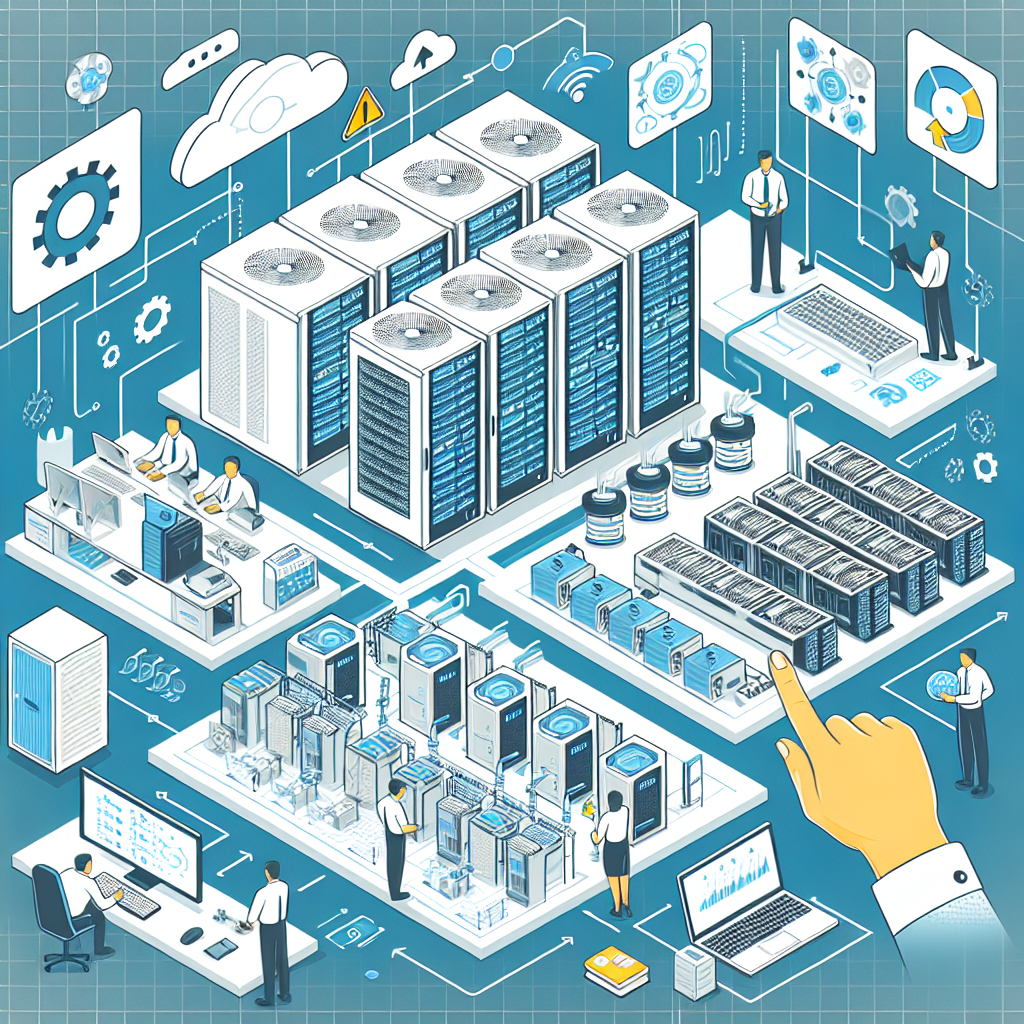
Implementing a Successful Data Center Facilities Management Strategy: Tips and Best Practices
Data centers are the backbone of modern businesses, housing the critical infrastructure that supports their operations. As such, it is essential for organizations to have a solid data center facilities management strategy in place to ensure the smooth and efficient functioning of their data center facilities. Implementing a successful data center facilities management strategy requires careful planning, attention to detail, and adherence to best practices. In this article, we will discuss some tips and best practices for implementing a successful data center facilities management strategy.1. Conduct a comprehensive assessment of your data center facilities: Before implementing any changes or improvements to your data center facilities, it is crucial to conduct a thorough assessment of the current state of your data center. This assessment should include an evaluation of the physical infrastructure, power and cooling systems, security measures, and overall operational efficiency. By understanding the strengths and weaknesses of your data center facilities, you can develop a targeted strategy for improvement.
2. Develop a detailed facilities management plan: Once you have completed your assessment, it is important to develop a detailed facilities management plan that outlines the goals, objectives, and actions needed to optimize the performance of your data center facilities. This plan should include specific tasks, timelines, and responsibilities for each aspect of facilities management, such as maintenance, troubleshooting, and disaster recovery.
3. Implement proactive maintenance practices: Regular maintenance is essential for ensuring the reliability and efficiency of data center facilities. Implementing proactive maintenance practices, such as routine inspections, equipment testing, and predictive maintenance, can help prevent costly downtime and equipment failures. By staying ahead of potential issues, you can minimize the risk of disruptions to your data center operations.
4. Monitor and optimize power and cooling systems: Power and cooling systems are critical components of data center facilities, as they play a key role in maintaining the optimal operating conditions for servers and other equipment. Monitoring the performance of power and cooling systems, and optimizing their efficiency, can help reduce energy costs, improve reliability, and extend the lifespan of equipment. Implementing energy-saving measures, such as using efficient cooling technologies and implementing power management strategies, can also help reduce the environmental impact of data center operations.
5. Enhance data center security measures: Data center security is a top priority for organizations, as data breaches and cyber attacks can have devastating consequences. Implementing robust security measures, such as access controls, surveillance systems, and fire detection systems, can help protect sensitive data and prevent unauthorized access to data center facilities. Regular security audits and testing can also help identify vulnerabilities and ensure compliance with industry regulations.
6. Establish a disaster recovery plan: Despite the best efforts to prevent disruptions, data center facilities may still be vulnerable to unexpected events, such as natural disasters or equipment failures. Establishing a comprehensive disaster recovery plan that includes backup systems, data replication, and recovery procedures can help minimize downtime and ensure business continuity in the event of a disaster. Regular testing and updates of the disaster recovery plan are essential to ensure its effectiveness.
In conclusion, implementing a successful data center facilities management strategy requires a combination of careful planning, proactive maintenance practices, and adherence to best practices. By conducting a comprehensive assessment of your data center facilities, developing a detailed facilities management plan, and implementing proactive maintenance practices, you can optimize the performance and reliability of your data center facilities. Monitoring and optimizing power and cooling systems, enhancing security measures, and establishing a disaster recovery plan are also key components of a successful data center facilities management strategy. By following these tips and best practices, organizations can ensure the smooth and efficient functioning of their data center facilities, and support their business operations effectively.
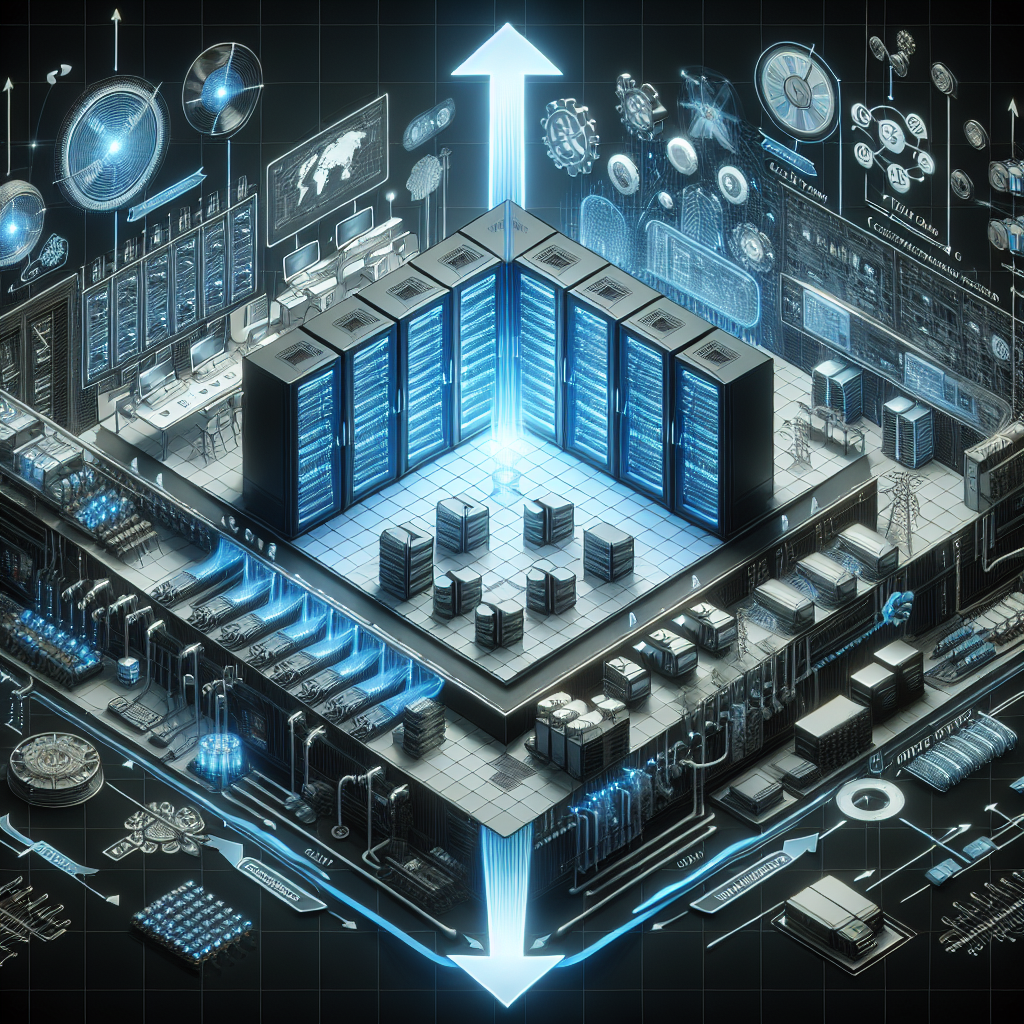
The Impact of Effective Data Center Facilities Management on Overall IT Operations
Data centers are the backbone of modern businesses, housing the critical infrastructure and hardware that support the digital operations of organizations. As such, the effective management of data center facilities is crucial for ensuring the smooth and efficient functioning of IT operations.Data center facilities management involves overseeing the physical infrastructure of the data center, including power and cooling systems, security measures, and maintenance of equipment. By optimizing these aspects of data center operations, organizations can improve the reliability, performance, and security of their IT systems.
One of the key impacts of effective data center facilities management is increased reliability and uptime. By ensuring that power and cooling systems are properly maintained and monitored, organizations can reduce the risk of downtime due to equipment failures or overheating. This, in turn, helps to minimize disruptions to IT operations and ensures that critical business processes can continue to run smoothly.
Effective facilities management also plays a crucial role in optimizing the performance of IT systems. By implementing best practices for power and cooling management, organizations can ensure that their hardware operates at peak efficiency, resulting in faster data processing and improved overall performance. This can help organizations to meet the growing demands of their business operations and deliver a better user experience to customers.
Furthermore, effective data center facilities management can enhance the security of IT operations. By implementing robust security measures, such as access controls, surveillance systems, and fire suppression systems, organizations can protect their data and equipment from physical threats. This is especially important in today’s digital landscape, where cyberattacks and data breaches are becoming increasingly common.
In addition to these benefits, effective data center facilities management can also help organizations to reduce costs and improve sustainability. By optimizing power and cooling systems, organizations can lower their energy consumption and reduce their carbon footprint. This not only helps to save money on energy bills but also demonstrates a commitment to environmental responsibility.
In conclusion, the impact of effective data center facilities management on overall IT operations cannot be overstated. By ensuring that the physical infrastructure of the data center is properly maintained and optimized, organizations can enhance the reliability, performance, and security of their IT systems. This, in turn, can help to drive business growth, improve customer satisfaction, and ensure the long-term success of the organization.
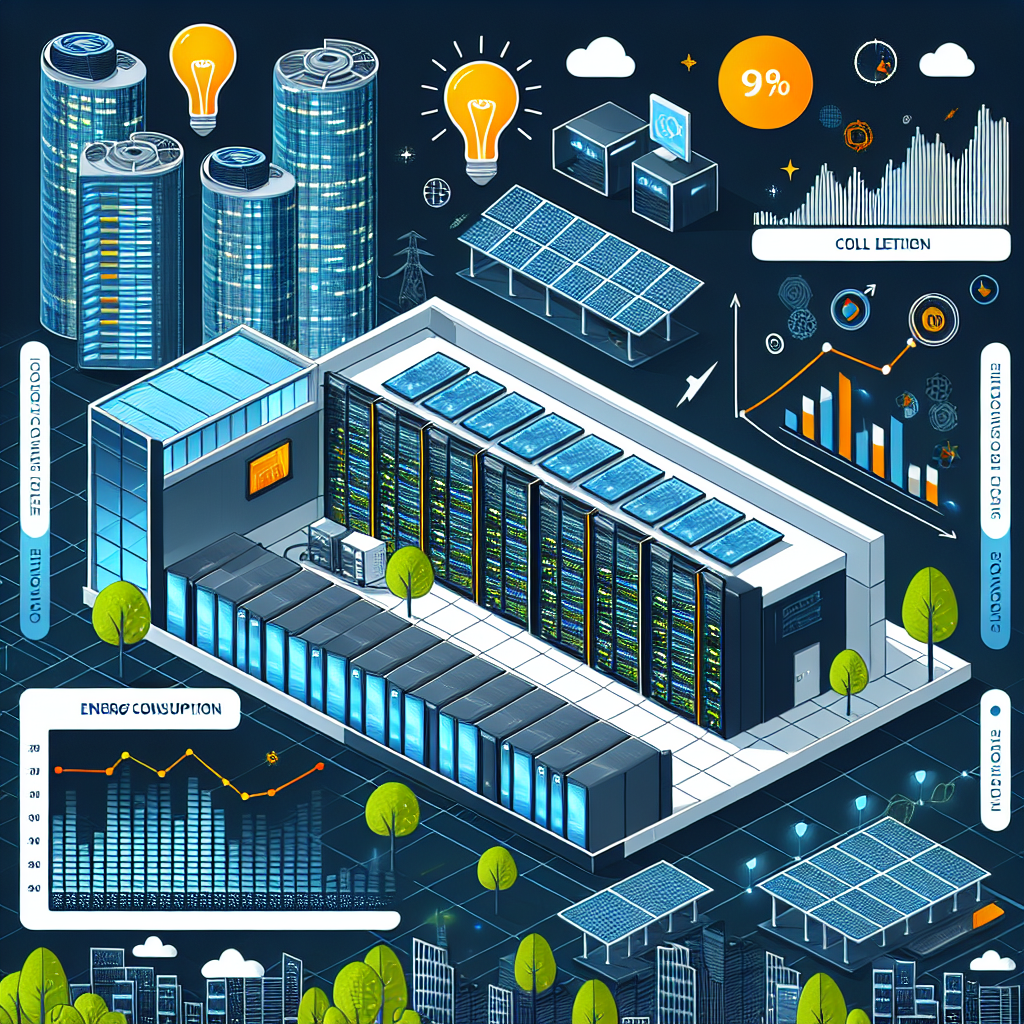
Challenges and Solutions in Data Center Facilities Management: Reducing Energy Consumption and Costs
Data center facilities management is a complex and challenging task, especially when it comes to reducing energy consumption and costs. Data centers are notorious for their high energy consumption, with some estimates suggesting that they can consume up to 3% of the world’s electricity. In addition to the environmental impact, high energy costs can also significantly impact a company’s bottom line.One of the main challenges in data center facilities management is the sheer amount of energy that is required to power and cool the servers and other equipment. This is especially true for large data centers that house thousands of servers. In order to reduce energy consumption, data center managers must find ways to optimize the efficiency of their facilities.
One solution to this challenge is the use of energy-efficient hardware and equipment. By using servers and cooling systems that are designed to be energy efficient, data center managers can significantly reduce their energy consumption. In addition, virtualization technologies can also help to reduce energy consumption by allowing multiple virtual servers to run on a single physical server.
Another challenge in data center facilities management is the need to ensure continuous uptime and reliability. Data centers are critical to the operations of many businesses, and any downtime can result in significant financial losses. To address this challenge, data center managers must implement robust monitoring and maintenance practices to ensure that all equipment is running smoothly and efficiently.
One solution to this challenge is the use of predictive maintenance technologies. By using sensors and analytics to monitor the performance of equipment, data center managers can identify potential issues before they result in downtime. This proactive approach to maintenance can help to ensure that data centers remain operational and reliable.
In addition to these challenges, data center managers must also contend with the rising costs of energy. As energy prices continue to increase, finding ways to reduce energy consumption and costs is more important than ever. One solution to this challenge is the use of renewable energy sources, such as solar or wind power, to supplement the energy needs of data centers. By investing in renewable energy technologies, data center managers can reduce their reliance on traditional energy sources and lower their energy costs in the long run.
In conclusion, data center facilities management presents a number of challenges when it comes to reducing energy consumption and costs. However, by implementing energy-efficient hardware, predictive maintenance technologies, and renewable energy sources, data center managers can overcome these challenges and create more sustainable and cost-effective facilities. By taking a proactive approach to energy management, data center managers can not only reduce their environmental impact but also improve their bottom line.
